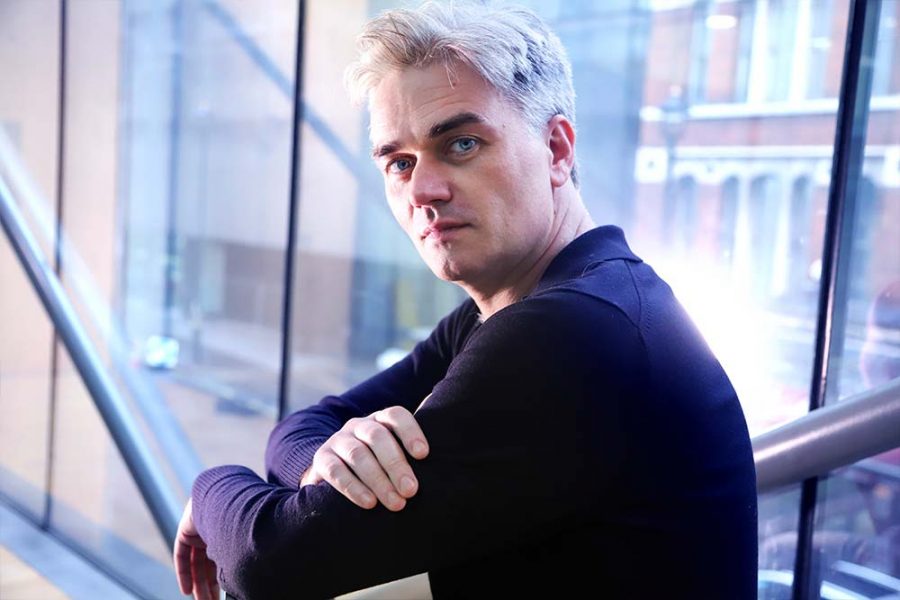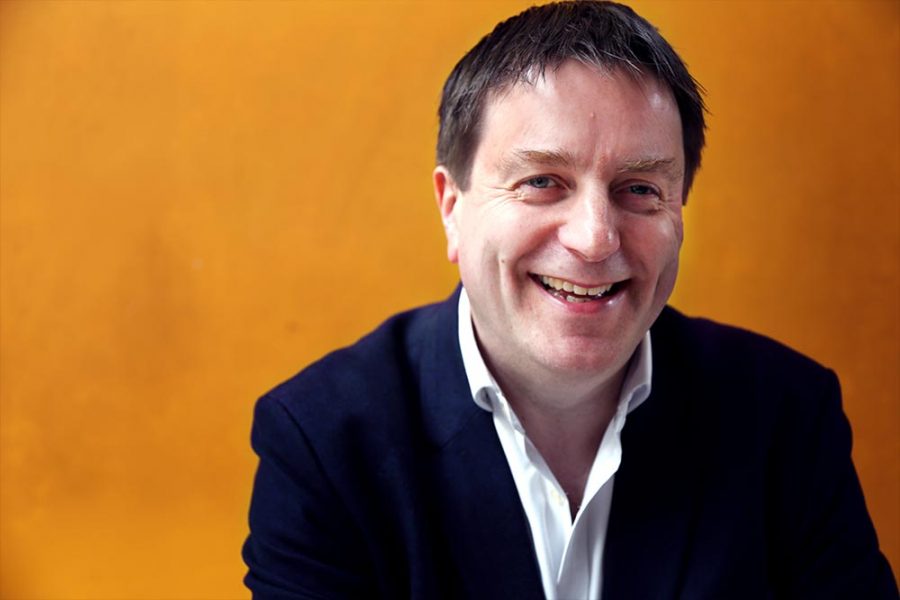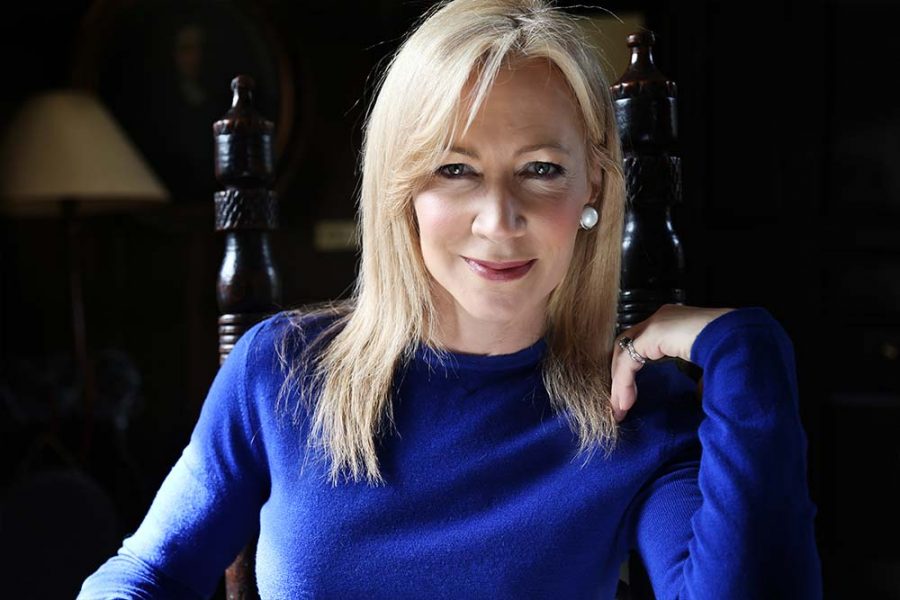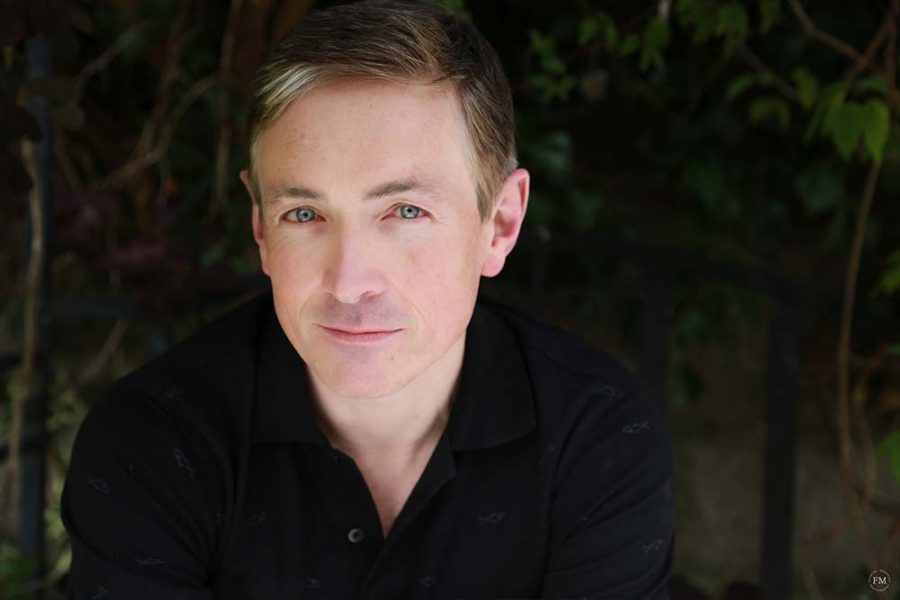Nurturing Excellence with Desmond Earley

March 2019
Interview and photos by
Frances Marshall
Share this article
How do you transform a college choir into an international professional success? Desmond Earley has built a movement among young singers that will undoubtedly preserve the Irish tradition of choral music.
He has redefined the artform to accurately represent this thriving country in its current musical state, while also respecting the legacy of Irish song.
In advance of the Choral Scholars of University College Dublin’s debut at Carnegie Hall, we met with Artistic Director Earley to talk about their new album Perpetual Twilight, motivating young musicians and how to never let money get in the way of your vision.
It’s so important to see yourself as an artist striving for excellence and to live it in every aspect of your approach."

You’ve been director of the Choral Scholars for two decades, what sparked the change of direction for the group?
We had built a strong reputation of performing early repertoire, along with the typical canon of European choral works. When Bill Whelan wrote a piece for us, called ‘Sun and Moon and Stars’, it was such a huge honour and I noticed the different sounds that the choir was making, which planted a seed that made me look into it further. We then collaborated with Brendan Graham, who wrote ‘Sleepsong’ and ‘Orphan Girl’, which were beautiful pieces that we started to present in our concerts – they were very well received by our audiences. We began to expand this style of repertoire and I wrote some arrangements that would work specifically well for the voices we had. We also explored the use of obligato instruments, like the cello, horn or cor anglais, that have given us a very different sound, especially on the last two albums.
We have always performed the music of Michael McGlynn, who is a real innovator in the area of Irish choral music and a great Irish composer. Michael’s ability to merge the traditional and European choral idiom broke new ground and he continues to create innovative work today – his work is very inspiring. So this was a new period for the choir that developed quite naturally – it definitely wasn’t planned, but has had a big and very positive impact on the singers.
You’ve managed to balance both classical and celtic audiences very well, where many have struggled to do this. What’s the secret?
My motto when it comes to music is that excellence is the only way forward. You can perform nearly any piece when the backbone principle is to bring our best voice to it. It’s so important to see yourself as an artist striving for excellence and to live it in every aspect of your approach. There should be no difference in how we approach a piece by Monteverdi, a contemporary high-art work or a crossover arrangement: they all need to achieve the best possible level. However, the most important thing is to be authentic – there are many groups who are using editing software to iron out sound issues, but I only ever want to record what we can perform live.
You seem to have taken an entrepreneurial approach to the choir, rather than just turn up and conduct. What made you take it to the next level?
I’ve always made it clear when running the choir that the singers had to be fully invested, and they are never going to give me that unless they see that I, myself, am fully committed. The entrepreneurial approach comes from my desire to expand their experience as young musicians, and to find our own voice and identity in music.
I’ve also had to create every job I’ve ever had, so for me it’s really about my investment in the role and I learned very early to never take anything for granted. I’m always thinking about how I can make this rehearsal a worthwhile expenditure of our time. What can we improve about our rehearsal yesterday and can we build on that work? It’s about looking for opportunities and thinking about sounds and new pieces that will challenge and excite young singers.
How did your relationship with Signum Records begin?
Nigel Short the director of Tenebrae choir came over to take a workshop with our choir in 2014. He felt that our “shimmering sound” should be recorded, so he got in touch with Steve Long at Signum Records and suggested that they record Choral Scholars.
A recording session followed and we put down everything we were singing that season. It was around 60% art music and 40% Irish music. Signum then advised us to lean into the Irish repertoire, so we came back six months later with newly-commissioned Irish pieces and arrangements, which led to our album Invisible Stars.
This experience gave the students great confidence and it was wonderful for them to have that sense of achievement. They believe in themselves even more now and are proud of what they have created. It was Signum’s best selling choral disc for 2016-17 – we couldn’t believe it! If you look at who our competition was it was enormous achievement and I was so proud of the choir for making that happen.

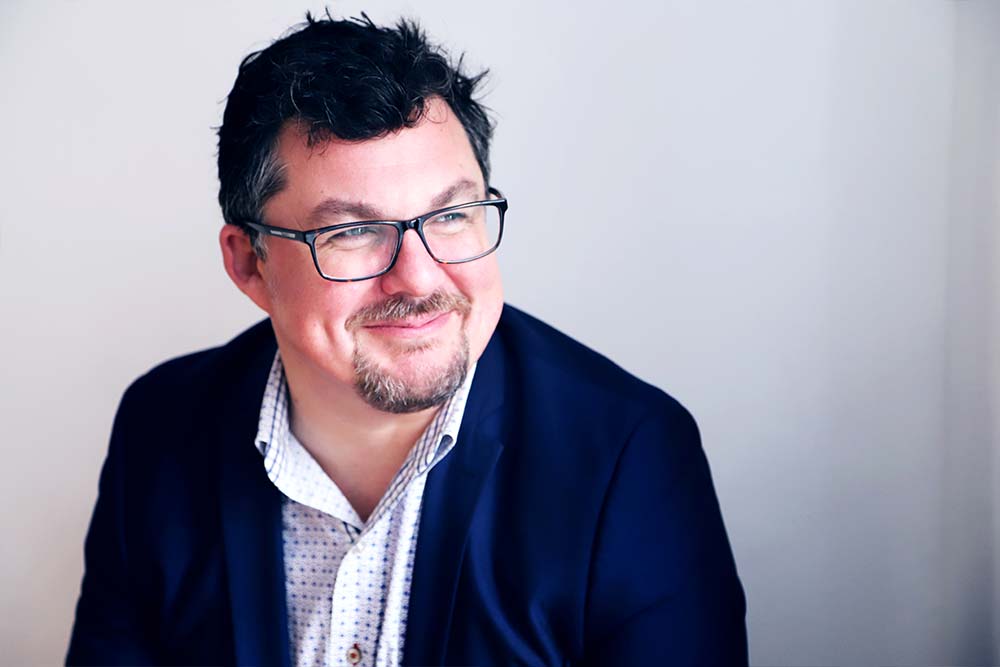

Musicality is of primary importance to me – we can teach them musicianship skills later. What I’m looking for is a warm, open vocal sound, and unaffected technique."

How do you select the singers?
Musicality is of primary importance to me – we can teach them musicianship skills later. What I’m looking for is a warm, open vocal sound, and unaffected technique. Once the singers are committed they can achieve anything. Now, they are expected to come to the rehearsal knowing their music. Sight reading alone is not enough: it needs to be in their bones and bloodstream.
We re-audition every year, come September I worry if I have the right singers for the group, but somehow it all comes together. We’re hoping to start changing the audition process and hear the singers before the CAO results, similarly to how sports scholarships operate, and be able to offer a scholarship on the basis that a student has talent great for the choir.
How do you go about redefining the Irish choral tradition?
Choral music is typically a European tradition, but in Ireland, song is so important to our culture and expressing who we are. There are many aspects to our musical personality, but our musical identity is free, expressive, ornamented and monophonic – this is the soul of Irish music.
Sometimes Irish artists feel they need to present a very marketable package of Ireland to please listeners abroad, and I understand that there’s money to be made, that it can be viewed as a tried and tested product. However, it’s important to have the courage to create new music and give the international audience the sound that we’re creating today in Ireland, because Ireland is not just historical songs, it’s songs we have in our soul now. This is what I wanted to achieve with our new album, Perpetual Twilight.
How have you developed this new tradition within the Choral Scholars?
For me it’s about recognising the level of musicianship that each singer has and to always work to their strengths. In the UK there’s a very strong music learning tradition where many singers have been sight reading in choirs since they were very young. We don’t have that, so we need to create a different learning method that allows the singers to have an individual confidence alongside their peers.
A great singer will not be able to shine if they’re worried about singing the wrong notes and at the end of the day that means I’m not getting the best out of the choir in front of me. There’s nothing worse than not knowing how to get better. It’s my job to unlock their potential, create a journey of progression and, when they work hard, the rehearsal is an incredible experience for which we are all responsible.
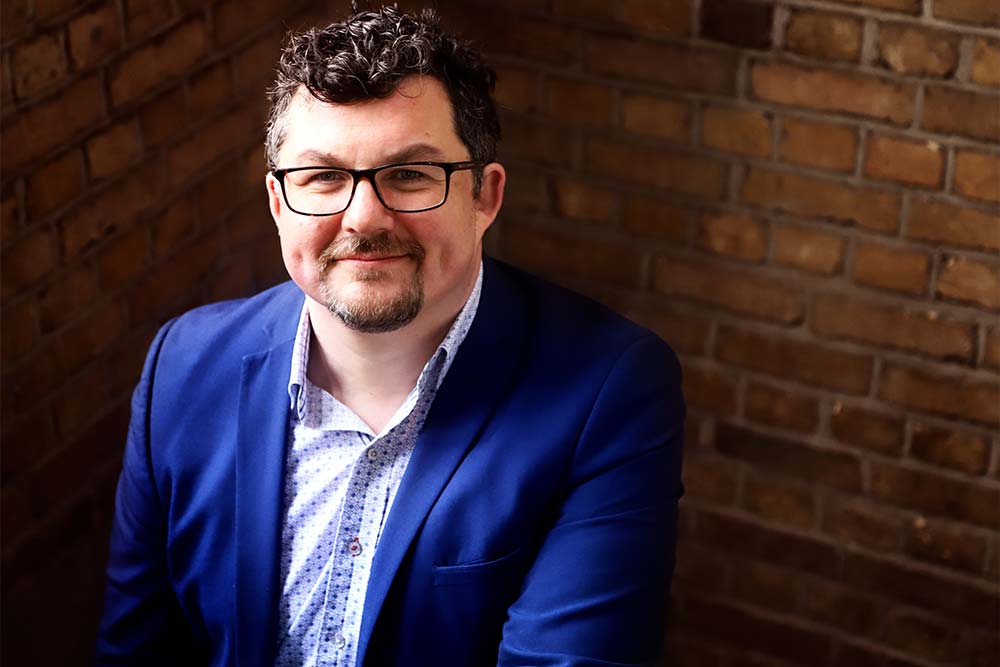


I've never said 'I can't afford that' and if somebody tells me we can't afford something that I know that choir needs, I'll bypass them until I find someone who is willing to work with us."

How did you get the university and students to support your vision?
The two faces of a university are the sports teams and the performing groups. No matter how good a science department is, you can’t put a student with a Bunsen burner on stage. It’s a huge asset to a university to have a thriving rugby team or a great orchestra. It demonstrates that the institution engages at a more inclusive and well-rounded level.
However, the most important thing to remember is that worrying about money is secondary. Don’t get me wrong, I need a salary to do what I do, we need rehearsal spaces and we’re never wasteful, but money can’t have a hold over you, if it does, you’ll never achieve anything. I’ve never said ‘I can’t afford that’ and if somebody tells me we can’t afford something that I know that choir needs, I’ll bypass them until I find someone who is willing to work with us.
We’ve performed for people who help us financially and I’ve no problem admitting that – it’s how this arts world works – but the standard has to be brilliant before anyone will give you a cent. People want to be associated with excellence and if you provide that, they will support and promote you. At the end of the day we’re in a university and it’s all about bettering yourself. A shoddiness and semi-committed approach will never get funded and why should it?
What’s the difference between this new album Perpetual Twilight and the previous Invisible Stars?
Both are a carefully curated selection of Irish songs arranged for choir by living Irish and international composers. Instead of focussing on our past, we are very much looking at Ireland today. In particular, Bill Whelan’s ‘Elegy’ with the text by Frank McGuinness, is based on the 2017 tragedy in Buncrana, which claimed the lives of five people – we feel very privileged to perform this piece in their memory. One of my pieces entitled ‘Body of the Moon’ is based on the solar eclipse in 2017, with a text by Galileo Galilei. Another composition by the incredibly talented Natasha Paulberg is on this disc with a poem by Patrick Kavanagh. There’s also some beautiful pieces based on the text of James Joyce. It’s a very unifying album with great contrast.
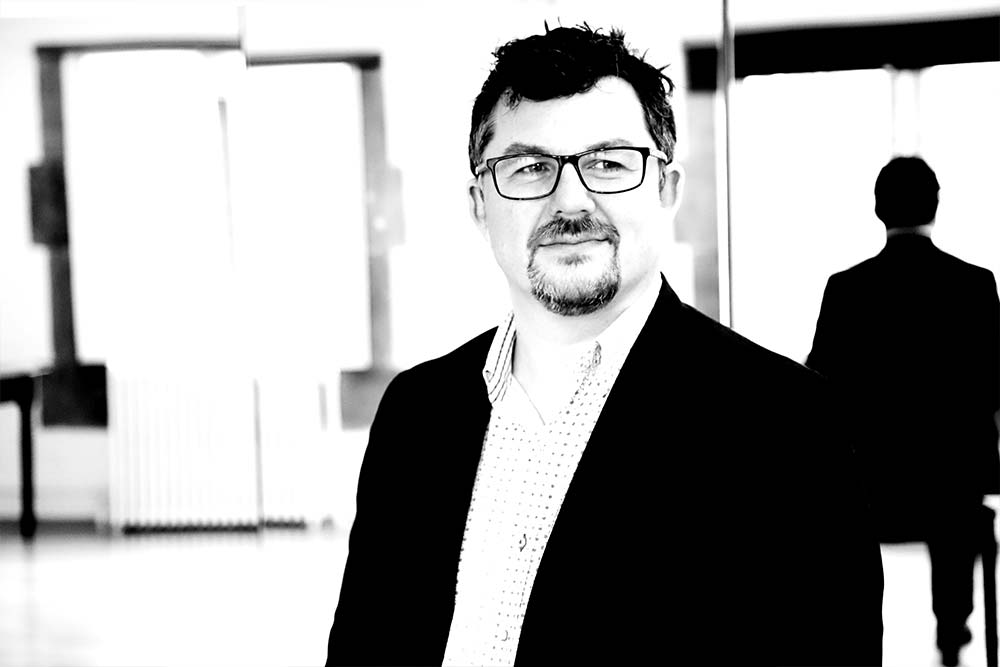

Tell us about your upcoming Carnegie Hall debut?
We have a big audience in the United States, so we decided to bring this music to Carnegie Hall. What separates this from another Irish concert in New York is that this is a programme of choral music that is full of new works. Each piece has been written specifically for this choir and for a modern Irish choral sound. It’s a programme that spans from that traditional side up to the high arts repertoire. There’s something for everybody, while also keeping the original intention of the music. We can’t wait!
Your social media has been a huge part of your exposure, along with millions of views on YouTube. Is it that you have an army of social media experts in the choir?
Well, none of the singers would push the choir on their own platforms if they weren’t proud of it. But yes, you’re right, the age group of the choir means that they are one of the first generations to grow up completely surrounded by social media. However, I’ve noticed that they use it more to find artistic inspiration, they’re not fooled by cheap tricks. They have a world catalogue at their fingertips, which means if they look for it, they can find the best standards very easily.
When it comes to reaching the millions of views, it’s very difficult to predict what’s going to go viral, but one way of making sure it won’t explode is if that is you’re only intention when making a video. Audiences are so discerning, so you have to be the best version of yourself, share your passion, share your artform and be excellent!

Find out more about Desmond Earley: www.ucdchoralscholars.ie/artistic-director
Listen to new album Perpetual Twilight: hyperurl.co/PerpetualTwilight
All images displayed in this article are subject to copyright.
Share this article


